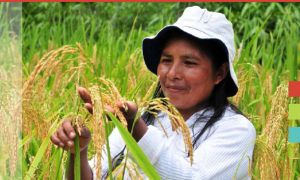COVID-19 and extreme weather: Impacts on food security and migration attitudes in the rural area of Guatemala
This paper examines the continuing effects of COVID-19 and exposure to weather extremes on income, dietary, and migration outcomes in the rural area of Guatemala.

